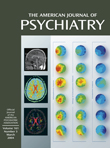Confidentiality and the Duty to Warn of Possible Harm
To the Editor: Paul S. Appelbaum, M.D., has written extensively on privacy and confidentiality, but his recent review (1), although characteristically thoughtful and generally comprehensive, does not adequately discuss the increasing pressure on psychiatrists to report behavior that may be harmful to others. The Tarasoff decisions, establishing a duty to warn or to protect in other ways, initially were controversial because of concern that patients’ trust would be eroded, causing them to avoid treatment or to withhold important information (2). In retrospect, this concern may have been excessive, as patients, in general, seem not to have felt betrayed by the loss of privacy in these extreme situations and the Tarasoff doctrine has become widely accepted (3). However, even if excessive, the concern was important, and now the pressure to report potentially harmful behavior goes far beyond the Tarasoff decisions’ “imminent danger to identifiable persons” to encompass modest risks to larger groups. My co-authors and I (4) discussed a substance-abusing bus driver, arguing that the facts of that particular case, including the driver’s weekday abstinence and his determination not to risk losing his job by failing a random drug test, justified not reporting his abuse. I have been impressed with the extent of disagreement with my conclusion, mainly in conversation, but also in print (5). Understandably, we are in a new era of heightened concern about protecting public safety. In this environment, psychiatrists, without being slavishly rule-bound, must remain sensitive to the importance of maintaining their patients’ trust. Protecting confidentiality, except in extreme situations, fulfills our obligation to patients, while further erosion of confidentiality and the consequent compromise of effective treatment are likely to harm both our patients and the public at large.
1. Appelbaum PS: Privacy in psychiatric treatment: threats and responses. Am J Psychiatry 2002; 159:1809–1818Link, Google Scholar
2. Appelbaum PS: Tarasoff and the clinician: problems in fulfilling the duty to protect. Am J Psychiatry 1985; 142:425–429Link, Google Scholar
3. Binder RL, McNiel DE: Application of the Tarasoff ruling and its effect on the victim and the therapeutic relationship. Psychiatr Serv 1996; 47:1212–1215Link, Google Scholar
4. Leeman CP, Cohen MA, Parkas V: Should a psychiatrist report a bus driver’s alcohol and drug abuse? an ethical dilemma. Gen Hosp Psychiatry 2001; 23:333–336Crossref, Medline, Google Scholar
5. Bursztajn HJ: Protecting patient care and public safety in the managed-care era. Gen Hosp Psychiatry 2002; 24:1–3Crossref, Medline, Google Scholar



